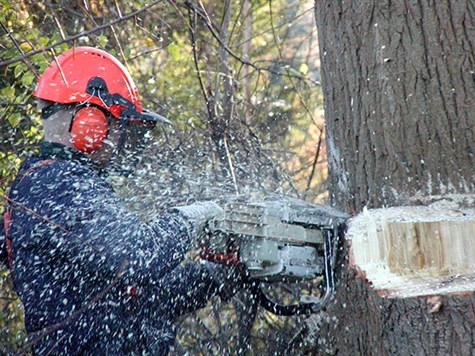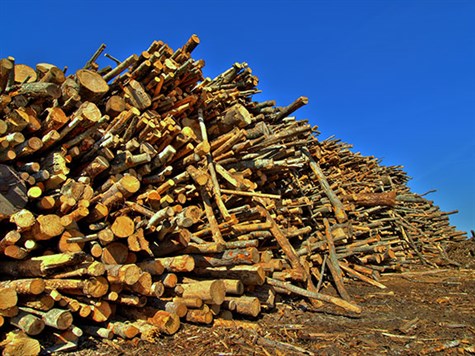Forestry: more regulations and more reviews
Patrick Cox recently attended a health and safety review in Whangarei to discuss the forestry industry, make notes, and then report back to the chair.
Before proceedings kicked off, a couple of Northland Maori Elders made a speech in Maori and said a prayer. The Mayor of Whangarei responded, and then disappeared. There were two politicians in the meeting, but I'm not sure if they were just there for the photo opportunity, as they also disappeared quite quickly. Now that the pomp and ceremony was over, the discussions got underway.
I had taken the time to sit and read the discussion paper prior to the meeting, with the reality being that no good ideas were coming out and hitting me between the eyes. It just seemed more and more of the same — a new name in WorkSafe, with the review panel set up to investigate and focus on serious injury and fatalities on the forest block.
After a short time of sitting and listening, I started to get this feeling of having been there, done that. Nothing appears to have changed, just the hint of more regulations, bigger fines, and possibly jail time. These threats will not solve the problem. Regulations appear to be nothing more than a butt-covering exercise. If you keep hitting a dog with a stick, eventually it will bite you or run away.
I believe this is already happening, with some operators keeping near misses, minor cuts, and bruising quiet, so as not to upset their accident-free days and keep ACC costs lower. It seems regulations are driving the industry underground and doing nothing to drop the death rate.

I was fortunate to talk to a logging contractor at lunch. He's a hardworking tough bugger, registered trainer, and motivated to keep his men safe, as this means production. Through the course of the day this contractor stood up and expressed his opinion on topics being discussed, but I got the feeling he was just holding back a little, not really letting go with what he wanted to say. After all, how could he? The meeting was a mixed bag of forest owners, forest managers, and contractors — particularly forest managers, as they hold the purse strings and speaking out against these people could jeopardise your future.
A logging contractor, who attended the WorkSafe review, called by my office a couple of days ago. We talked for a while and were both on the same page, having been around the logging industry since the early seventies.
I broached the subject of value-added cuts introduced in the eighties. These are cuts designed when crosscutting to get the tree on the ground with the least amount of damage. They are not safe, as trees are dropped at whatever angle they are leaning.
Prior to this introduction, crosscutters could directionally fall their trees to assist breaking out and ease extraction with better control being maintained. With value-added cuts, the crosscutter's options were greatly compromised, due to a big percentage of your holding or steerage wood being already cut. Therefore, what are the results today? More breaker-outs and crosscutters killed? Who introduced these cuts? It certainly was not the loggers, but those who wanted a better return on their investment.
I broached the subject of WorkSafe inspectors interpreting the law as they sought fit, rather than being consistent with how the law is written. The big stick approach is not a productive way to get loggers to comply. I believe inspectors need to work closely and explain the need for a logger to comply. It was mentioned that one logging contractor stops work and goes home when he sees one particular inspector arrive on his job, as he is totally unreasonable.
Wood lot contractors' accident rates are consistently lower than contracted logging crews who work for the major forest owners and forest managers. Are their dollar rates better? Being under less pressure probably enables them to work safer and not take shortcuts.

Maybe the forest owners and managers hold the key to the problem? Firstly, they should not be accepting the lowest of any tendered price. The price tendered should reflect the quality and health and safety record of the logging company. Secondly, what is a fair and safe price for the logging contractor to complete the work without putting his men at risk? Creating a competitive market is one thing, but doing it at the expense of lives is unacceptable.
Culture was a hot topic — creating the right culture in a logging crew is paramount. This culture must reflect right through the industry to all who are involved. The idea was mooted to recruit workers from jails. I was shocked and stunned at this suggestion. The logging industry is struggling to get quality workers, with poaching from contractor to contractor being rife. Unfortunately, the logging industry has no choice but to employ those at the bottom of the food chain.
Wages paid do not encourage the more intelligent to work in the industry. Back in the seventies and early eighties, a logger could earn a third more than working in town. You could go into the bush, work your butt off for ten years, make a heap of money, and get the hell out while you were still young.
The logging industry is in serious trouble and I get the feeling from the loggers that, after this review, there will be no change, just more controversial regulations. This is another waste of time, another change to the system, no consistency, and nobody having the guts to make the hard calls.
Loggers need to be better paid, with longer air-tight contracts. The reality is that it costs money to comply, and if you don't have the money, you will cut costs.
The Maori Elder was asked to close the meeting and he gave a short speech. He summed it up with this statement. "I do not know much about the logging industry, but what I have heard here today, I will take back to my people – but I cannot recommend to them to work in such a dangerous industry".
We have high Maori unemployment in Northland and I have to agree. Why would you risk your life for the sixteen to twenty dollars an hour? You're probably better off on the dole. At least that way you stay alive.
For the latest construction news and machinery reviews, subscribe to Deals On Wheels magazine here.
Keep up to date in the industry by signing up to Deals on Wheels' free newsletter or liking us on Facebook.

.jpg)

.jpg)

.jpg)

